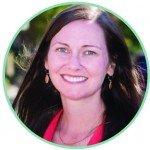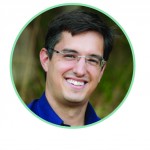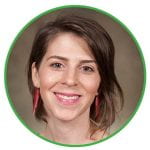Faculty Affiliates
Elizabeth (Liz) Budd
Evergreen Assistant Professor, Department of Counseling Psychology & Human Services
http://ebudd@uoregon.edu
Research: My research interests generally lie in adolescent (particularly girls) physical activity promotion, obesity and chronic disease prevention, dissemination and implementation, school and neighborhood settings. My international research began in 2008 when I was an Intern for Guide for Useful Interventions for Physical Activity in Brazil and Latin America (Project GUIA). I lived in Curitiba, Brazil for a summer and assisted with environmental audits. My more recent international research experience has been coordinating a National Cancer Institute-funded R21 called, A Cross-Country Comparison of Evidence-based Prevention of Cancer.
Teaching: FHS 492 Current Issues in Public Health
Sites: Project GUIA: http://www.projectguia.org/en/
Alfredo Burlando
Associate Professor, Department of Economics
burlando@uoregon.edu
Research: As a development economist working primarily in sub-Saharan Africa, I am interested in how health environments influence human development, how fertility responds to economic shocks, and how households use financial tools (savings, borrowing) to mitigate health risks. My past work analyzed the relationship between malaria risk and schooling choices in the Ethiopia highlands, and described how power outages in Tanzania have had negative impacts on in utero development and increased fertility. Most of my current work involves randomized trials (RCTs) of financial inclusion programs in Uganda and Tanzania. The interventions I work on target rural, extremely poor sub-populations that are particularly vulnerable to health shocks.
Teaching: Econ 490: International Development
Sites: pages.uoregon.edu/burlando

Shankha Chakraborty
Professor, Department of Economics
shankhac@uoregon.edu
Research: The health of a population in intrinsically linked to the health of an economy. My research on population health looks at the spread of infectious diseases and their effect on economic behavior, rising microbial resistance in developing countries, the nexus between health and inequality and the relevance of mortality and morbidity for demographic change.
Teaching: Econ 491/591: Issues in Economic Growth and Development (note: class has Ec 311, 313 and 320 pre-reqs)
Sites: pages.uoregon.edu/shankhac
 Zachary DuBois
Zachary DuBois
Assistant Professor, Department of Anthropology
zdubois@uoregon.edu
Research:I am a biocultural anthropologist whose research draws on both qualitative and quantitative methods to ask questions at the intersection of biology and culture. My research focuses broadly on social determinants of health and the ways in which our social lives become embodied. One focus of my work aims to understand how stress, resilience and other social determinants of health “get under the skin” via experiential and physiological pathways in order to understand health disparities among those most vulnerable to social stress effects. My research focuses on transgender experience and health as well as on developing theoretical and methodological work grappling with issues of gender/sex and categorical thinking. I am currently leading The Trans Resilience in Sociopolitical Context Study (with collaborator Dr Jae Puckett from MSU) a multi-state study in the U.S. which includes interviews and biomarker measures of health among trans and gender diverse people. I am committed to community-engaged research and passionate about working collaboratively and with students.
Teaching: ANTH 362 Human Biological Variation; ANTH 610 Qualitative Data Analysis & Mixed-Methods Research
Site: https://anthropology.uoregon.edu/profile/zdubois
Geeta Eick
Laboratory Manager & Research Associate, Human Biology Research Laboratory, Department of Anthopology
beick@uoregon.edu
Research: As a trained molecular biologist and biochemist, I am actively engaged in developing and validating novel health related markers that can be assayed from minimally invasive samples, like dried blood spots and saliva, in the Snodgrass Human Biology Research Lab at the UO. In addition to my lab research, I have extensive experience training students and health care professionals both locally and internationally in the collection of dried blood spots and the use of poin-of-care devices to measure health metrics such as blood glucose, lipids, and hemoglobin.
Sites: The Snodgrass Human Biology Research Laboratory , Geeta Eick, PhD
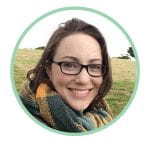 Clare Evans
Clare Evans
Assistant Professor, Department of Sociology
cevans@uoregon.edu
Research: My research focuses on the social determinants of population health disparities, including social networks, environments (neighborhoods, schools), segregation and stratification, and intersectional social identities. I am interested in the roles of social determinants across the life course, and in particular have focused on adolescent health and development. Many of my ongoing research projects entail developing novel quantitative analysis techniques that enable us to better understand how multiple contexts—both physical and social—combine to shape individual health behaviors and population health disparities.
Teaching: SOC 385 Sociology of Health and Medicine; SOC 613 Multilevel and Panel Data Analysis ; SOC 311 Intro to Social Science Research Methods; SOC 399 Epidemiology and Social Epidemiology

Adria Godon-Bynum
Health Promotion Specialist, University Health Center
adriagb@uoregon.edu
Research: My area of emphasis is primarily focused on college health. I have a Master’s degree in Public Health, Health Promotion from Oregon State University. Using a public health framework, I have worked to address the unique and diverse needs of college students for the past four years on myriad of health topics including sexual violence prevention, alcohol and other drug harm reduction, tobacco control and prevention, physical activity, stress tolerance and healthy sleeping. My primary focus at the University of Oregon is on developing an active and vibrant peer health educator program and the implementation of the new wellness center, the Duck Nest, scheduled to open fall 2016. I am passionate about student wellbeing and community collaboration.
Teaching: FHS 407 Peer Health Methods
Sites: UHC Health Promotion: https://healthcenter.uoregon.edu/About/HealthPromotion.aspx
UO Peer Wellness: https://healthcenter.uoregon.edu/Home/PeerHealthEducators.aspx

Melissa Graboyes
Associate Professor of History, Clark Honors College
graboyes@uoregon.edu
Research: My research interests are broadly related to the history of medicine, health and disease on the African continent. My book, The Experiment Must Continue: Medical Research and Ethics in East Africa, 1940-2014 tells the story of human experimentation in the countries of Kenya, Tanzania and Uganda, and helps contextualize and historicize modern ethical debates about human subjects research. I am engaged in a number of other research projects in East Africa that focus on the history of failed malaria elimination attempts in Zanzibar. Another project, in the early stages, traces the creation and growth of the ubiquitous “DHS” (Demographic and Health Survey) and the ethical questions surrounding the use of this tool. I am particularly interested in making research findings accessible to the larger public, and serving as a bridge to translate academic findings to global health and medical practitioners working in the field.
Teaching: HC 231H: Epidemics and Epistemologies in Pre-Modern Europe; HC 232H: Disease, Public Health, and the Making of the Modern World
Sites: melissagraboyes.com
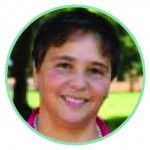
Shoshana D. Kerewsky
Faculty and Director of Family and Human Services; Department of Counseling Psychology and Human Services
kerewsky@uoregon.edu
Research: Shoshana Kerewsky is Director of the Family and Human Services (FHS). She teaches in the undergraduate FHS and SAPP programs and the graduate Counseling Psychology and Couples and Family programs. She is Director of Internships for Counseling Psychology. Her major teaching interests include ethics, professional preparation, diversity, international service, health interventions, and supervision.Dr. Kerewsky has served as president of Northwest Human Services Association, Lane County Psychologists’ Association, and Oregon Psychological Association. She has chaired OPA’s Ethics Committee and co-chaired National Organization for Human Services’s Ethics Committee. She is editor of The Oregon Psychologist and serves on OPA’s Diversity Committee.
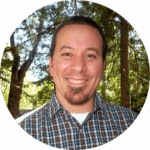
Raoul S. Liévanos
Associate Professor, Department of Sociology
Graduate Faculty, Department of Indigenous, Race, and Ethnic Studies
Participating Faculty, Environmental Studies Program
raoull@uoregon.edu
Research: My research focuses primarily on the organizational, institutional, demographic, and spatial dynamics of environmental and housing market inequalities and on the social movements and policy processes that attempt to address such inequalities in the United States.
Teaching: Soc 304: Community, Environment, and Society; Soc 310: Social Theory; Soc 370: Urban Sociology; Soc 416/516: Environment and Health; Soc 613: Spatial Analysis; Soc 644: Race, Space, and Power.
Site: https://sociology.uoregon.edu/profile/raoull/

Krystale E. Littlejohn, PhD
Assistant Professor of Sociology
University of Oregon (on Kalapuyan land)
klittlej@uoregon.edu
Research: I study the intersectional politics of reproduction. I use quantitative and qualitative methods to understand how social meanings shape sexual health practices and reproductive outcomes. My previous work largely focused on young women. Projects currently in development shift the focus to couples to understand the relational contexts that affect sexual and reproductive decision-making.
Teaching: SOC 399: Social Construction of Health; SOC 455: Politics of Reproduction; SOC 457: Sex and Society; SOC 610: Health & Illness
Site: https://www.krystalelittlejohn.com/

Heather McClure
Research Assistant Professor and Associate Director, Center for Equity Promotion
hmcclure@uoregon.edu
Research: McClure is a cultural anthropologist who, since 1996, has used qualitative and quantitative methods to research stress and sociocultural determinants of physical, mental and behavioral health (e.g., violence and drug abuse) in Central America and within Latino communities in the United States. In her current role, McClure is Associate Director of the Center for Equity Promotion (CEQP) at the University of Oregon (UO). CEQP is dedicated to working with communities to better understand and support the positive development of children and families, particularly those who are underserved by education, health, and social service systems. Our research informs culturally-specific prevention, intervention, and policy efforts that build on community strengths. Since 2007, McClure has directed CEQP’s community partnered research studies to investigate links between stress (biological and psychosocial) and health among Latinos in Oregon.
Site: Center for Equity Promotion: http://ceqp.uoregon.edu/

Jeffery Measelle
Professor, Department of Psychology
measelle@uoregon.edu
Research: I study the neurodevelopmental effects of early adversity, in particular, malnutrition, on the human brain as well as the ways we can actually protect and support the newborn brain – both prenatally and postnatally. We work in close partnership with governments and scientific colleagues in Southeast Asia, in particular, Laos, Viet Nam, Cambodia, and Myanmar.
Teaching: PSY 202 – Mind & Society (Gen Ed); PSY 308 – Developmental Psychology (Gen Ed); PSY 399 – Global Child Health and Development; PSY 480 – Development and Psychopathology in the Global Context
Site: http://dslab.uoregon.edu/
Nicole Ngo
Associate Professor, Department of Planning, Public Policy & Management
nngo@uoregon.edu
Research: My research is at the intersection of environmental health and urban sustainability, primarily related to issues around air pollution and climate change in the U.S., China and sub-Saharan Africa (SSA). Examples of previous and ongoing research projects include air quality monitoring in SSA, where urban air quality data are scarce despite a growing urban population, and evaluating the health impacts of environmental policies.
Teaching: PPPM 460/560: Health policy; PPPM 202: Healthy communities; PPPM 407/507: International sustainability
Site: https://pppm.uoregon.edu/nicole-ngo
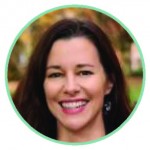
Elaine Replogle
Senior Instructor, Department of Sociology
replogle@uoregon.edu
Research: My dissertation (2005) was on the mental health and identity of second generation South Asian-Americans. Since then, I’ve been teaching courses primarily *outside* the area of sociology of health or sociology of mental health, but I would very much like to return to some health-related research. When I was in grad school, I was affiliated with Rutgers University’s Center for Health, Health Care Policy and Aging Research. I did research during my grad school years on teenage obesity, racial differences in smoking trajectories among youth, and worked on a project on patterns of depression among New Jersey youth. I worked primarily with Allan Horwitz, but also a bit with Helene Raskin White and with Megan Sweeney (no longer at Rutgers).
Teaching: Sociology of Mental Health (SOC 410); Sociology of Health and Medicine (SOC 399); American Society (SOC 311); Social Inequalities (SOC 207); Sociology of Mass Media (SOC 317)
Site: http://sociology.uoregon.edu
 Josh Snodgrass
Josh Snodgrass
Professor, Department of Anthropology; Core Faculty, Global Health Program
jjosh@uoregon.edu
Research: My research addresses topics such as the influence of social and environmental change on health (including chronic and infectious/parasitic diseases, as well as mental health issues), aging in global context, biomarkers of physiology and health obtained using minimally invasive techniques, human adaptation to environmental stressors (e.g., physiological adaptation to cold stress), and the evolution of the human diet.
Teaching: ANTH 175 Evolutionary Medicine; ANTH 199 Paging Dr. Darwin First-Year Interest Group (FIG); UGST 112 Health Sciences Academic Residential Community (ARC); ANTH 369 Human Growth and Development; ANTH 410/510 Emerging Infectious Diseases and Pandemics.
Community Engagement: I am deeply invested in the health and well-being of my community, partnering with a variety of organizations such as Huerto de la Familia to increase health care access. Much of my work addresses social determinants of health and I am deeply committed personally and professionally to reducing local, US, and global inequities. I am also one of the founders of UO’s Corona Corps.
Sites:
http://www.pinniped.net/snodgrass.html (Personal Webpage)
http://www.pinniped.net/snodgrasslab.html (Snodgrass Human Biology Research Laboratory)
http://www.bonesandbehavior.org/siberia.html (Siberia Project Webpage)
http://www.bonesandbehavior.org/shuar/ (Shuar Health & Life History Project Webpage)
http://www.bonesandbehavior.org/sage/ (WHO’s SAGE Eugene Office Webpage)]

Kirstin N. Sterner
Associate Professor, Anthropology
ksterner@uoregon.edu
Research: I am a molecular anthropologist that uses evolutionary genomics to study human health. My research on the evolution of primate immunity provides an evolutionary framework for understanding why humans are particularly susceptible to certain diseases. In addition, as a member of the World Health Organization’s Study on Global Ageing and Adult Health (SAGE) I use genomics/epigenomics to investigate how environment shapes the pace of biological aging.
Teaching: ANTH 376 Genomics & Anthropology; ANTH 459 Advanced Evolutionary Medicine
Site: http://molecular-anthro.uoregon.edu/Sterner/index.html
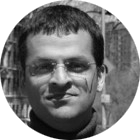 Arafaat A. Valiani, Ph.D.
Arafaat A. Valiani, Ph.D.
Associate Professor
Associate Department Head/Chair
Director of Undergraduate Studies
Department of History
Affiliated Faculty, Department of Sociology
valiani@uoregon.edu
Research: I am a medical sociologist and historian of science and my current intellectual interests focus on questions regarding biomedicine/biotechnology and population genetics in South Asia and among Asian populations in North America. Employing methods from medical sociology, indigenous science and technology studies and South Asian Studies, I study how discourses about ethics and innovation mediate the production of biomedecine in India and among Asian populations in North America. My current papers explore biotechnology, specifcally genomic science and precision medicine, in India and North America, electronic voting machines in India, biotechnology and human milk markets in the United States and Canada, and Chinese birth tourism in the United States and Canada are sites that are. This body of research contributes to debates in sociology of health and medicine, history of science, gender, race/ethnicity, First Nations health and South Asian Studies.
Teaching: History 407 Indigeneity, Race and Biotechnology; History 407 Biomedicine and Disease
Site: https://history.uoregon.edu/profile/valiani/
Lesley Jo Weaver
Associate Professor, Global Studies
ljweaver@uoregon.edu
Research: Lesley Jo Weaver, Ph.D., M.P.H is an Associate Professor of anthropology and director of undergraduate studies in the Department of Global Studies. She studies health and illness in India and Brazil and speaks Hindi and Brazilian Portuguese. In urban India, she explores how the day-to-day management of type 2 diabetes shapes North Indian women’s abilities to participate in social roles considered appropriate for women of their age, class, and caste groups. She also studies how South Indian women explain and understand pathological distress. In rural Amazonia, Brazil, she studies the links between food insecurity, mental health, and chronic diseases. She also co-hosts the academic podcast Speaking of Race about the history of scientific racism and its present-day implications around the world.
Teaching: GLBL 415/515 The Global Story of Race; GLBL 607 Graduate Research Methods; GLBL 102 Foundations for Intercultural Competence; GLBL 467 Global Mental Health
Site: http://lesleyjoweaver.com/
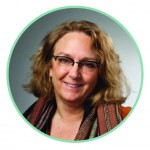
Janis Weeks
Professor, Biology
weeks@uoneuro.uoregon.edu
Research: Janis C. Weeks, Ph.D., is Professor of Biology and a member of the Institute of Neuroscience and African Studies Program. Her research, most recently funded by the Bill & Melinda Gates Foundation, uses microfluidic and electrophysiological technologies to advance drug discovery for parasitic worm infections of humans and animals, and other diseases: http://www.neuro.uoregon.edu/ionmain/htdocs/faculty/weeks.html. This work led to the founding in 2011 of a UO spin-off company, NemaMetrix Inc. (nemametrix.com), where Weeks is Chief Scientific Officer.
Teaching: BI 309 Tropical Diseases in Africa; HC434 HIV/AIDS in Africa
Sites: Study-abroad program in Ghana, focused on Global Health and Development (https://geo.uoregon.edu/accra/globalhealth) . She has been involved in research and education capacity building in Africa for two decades and is a student and performer of Zimbabwean music http://www.kutsinhira.org/wiki/index.php/Welcome%21.
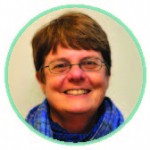
Mary Wood
Professor, Department of English
mewood@uoregon.edu
Research: My past work has been on narrative, the history of psychiatry, and representations of mental health and illness in relation to class, race, and gender. I’m currently working on a project that examines novels about health crises in the rural U.S., Nigeria, the Marshall Islands, and other locations where neoliberal global economic policies have fostered an inequitable burden of disease. Reading these novels in the context of global health, this project explores the crucial role of literature and the arts in communicating to reading and viewing publics the ways that larger societal values, transmitted through policies and practices, play out in local, everyday lives.
Teaching: HUM 240–Medical Humanities; ENG 607–Medical Humanities and Life Writing; ENG 607–Narrative, Medicine, and the Body

Kristin Yarris
Associate Professor, Global Studies
keyarris@uoregon.edu
Research: I am currently completing a book manuscript on intergenerational caregiving as a resource for wellbeing in Nicaraguan transnational families. I have two ongoing research projects: the first, funded by the Wenner Gren Foundation for Anthropological Research, is a study of the impacts of transit migration through Mexico’s “Ruta Pacifica”, examining the responses of the state, NGOs, and local, informal, humanitarian actors to migration. The second, through my role as a Faculty Mentor for the Latino Mental Health International Research Training Program, is an examination of formal psychiatric care and informal, family care for adults living with major mental illness in Mexico.
Teaching: GLBL 340 Global Health & Development; GLBL 465563 Population Displacement & Global Health; GLBL 465/565 Global Reproductive Health; GLBL 410510 Global Mental Health; GLBL 410510 Transnational Migration; CHC 424H Suffering, Violence, and Healing.
Sites:
http://intldept.uoregon.edu/profile/keyarris
https://uoregon.academia.edu/KristinElizabethYarris
https://dornsife.usc.edu/latino-mental-health/faculty-mentors/
